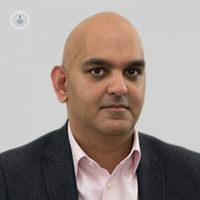Atrial fibrillation: how knowing your regular pulse can save your life
Written by:Atrial fibrillation is a heart rhythm abnormality, where the upper chambers of the heart (the atria) beat irregularly. The atria control the normal rhythm of the heart, so when they are not functioning as they should, your pulse becomes irregular. One in four people in the UK develop atrial fibrillation, with an estimated 1.5 million in the UK, and 16 million people worldwide having the condition.

What causes atrial fibrillation?
With atrial fibrillation, the muscles in the atria contract randomly, and at times fast, due to abnormal electrical impulses in the heart. This causes the heart problems in relaxing during beats, and the natural pace of the heart is affected. Due to this irregularity, the heart doesn’t work efficiently, and the rhythm can no longer be controlled properly. The cause is not fully known, but may be triggered by smoking and excessive alcohol consumption. It is more common in people with existing cardiovascular problems such as coronary heart disease and high blood pressure.
What are the risks of atrial fibrillation?
Atrial fibrillation is not usually life-threatening, however it is one of the main causes of stroke. According to the AF Association, someone suffers from an AF related stroke every 15 seconds. Due to the irregular beating of the heart, blood can pool and clot. These clots can then start flowing around the blood system, eventually causing a blockage in the smaller blood vessels in the brain. It is these blockages that cause an ischaemic stroke.
Atrial fibrillation: how to recognise the signs
You can easily detect the signs of atrial fibrillation, by simply checking your pulse.
- Regularly check your pulse, by holding the palm of your hand upwards, and placing your first and middle fingers on your wrist.
- Count the number of beats every 30 seconds and multiply by two.
- Check your pulse regularly so that you recognise your regular heartbeat, this will help you to recognise when your heart is beating irregularly.
- If you feel that your heart is beating irregularly, the most common being periods of rapid heartbeat for no reason, called palpitations, then you should monitor it, and see a doctor.
- Other symptoms include dizziness, shortness of breath and fatigue, although some people experience no symptoms.
Treatment of atrial fibrillation
There are three possible strategies to treat atrial fibrillation:
- Medication to control the heart rhythm. This may be daily medication, or medication when you have palpitations.
- Atrial fibrillation can be treated with a blood-thinner (anticoagulant) treatment to reduce the risk of the blood pooling causing blood clots. Recent studies have found that anticoagulants can reduce the risk of dementia by up to 48% in patients, due to the prevention of the microscopic blood clots that cause cumulative damage in the brain. After testing for atrial fibrillation with a specialist cardiologist, you will be assessed for risk factors to decide whether to start on the anticoagulant treatment.
- Catheter ablation surgery, which is a minimally invasive treatment, involving the insertion of a catheter through the veins in the leg. Radio waves are then used heat and destroy the irregular electrical signals within the heart that are responsible for triggering AF.
If you are concerned about atrial fibrillation, and would like to make an appointment with a specialist cardiologist, click here.


